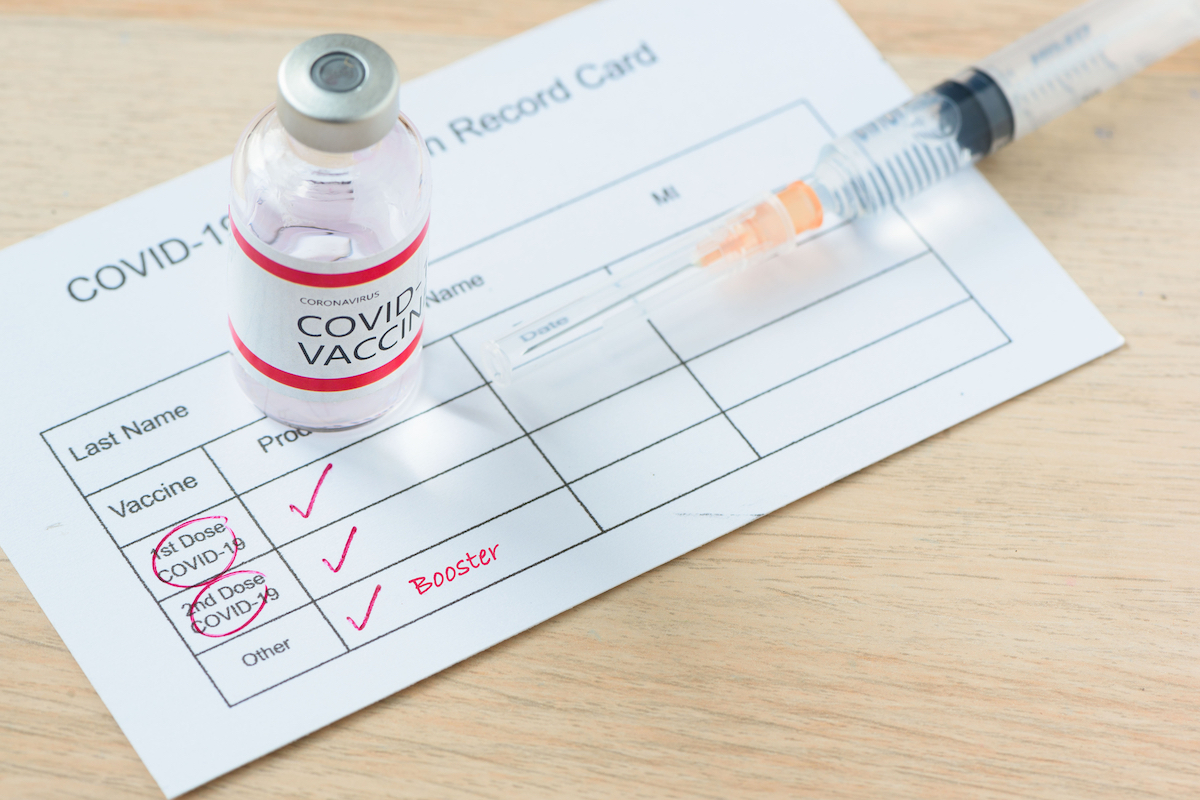Regardless of the variant, a significant number of COVID-19 symptoms are associated with the ears, nose, and throat including sore throat, runny nose, sneezing, changes in taste, smell, and hearing, and headache. In fact, in one study, 90% of patients with COVID-19 had ENT-related symptoms.)
Long-term symptoms of COVID-19 such as loss of taste and smell, tinnitus, and vertigo also affect the ear, nose, and throat.
As a physician specializing in otolaryngology, I have a vested interest in seeing my patients protected from the short and longer-term effects of COVID-19 on the ears, nose, and throat.
While there are still breakthrough infections, vaccinations have proven to be effective in reducing the severity of these symptoms, especially among people over 55, those with significant medical issues, and those who are immunosuppressed.
Vaccines: Personal Choice with Public Impact

In the past two years, few subjects have been as divisive in America as vaccines, despite their being part of the backbone of public health for decades.
The decision of whether or not to be immunized should be a personal choice, however, individual choices in all aspects of life affect those around us.
Immunizations have been used worldwide to get infectious diseases under control since the development of the smallpox vaccine in 1797. More than half of Americans will receive a flu shot annually. And it wasn’t that long ago that chickenpox was circulating unchecked through America’s classrooms (95% of American adults have had it), but today just two doses of the varicella vaccine are 90% effective in preventing it.
COVID-19 Vaccines By the Numbers
As a physician, it’s important to look at what the numbers say when we consider the benefits of immunization. Think of boosters (sometimes called a “third dose”) as an extension of your primary dose or series of vaccinations. Over time, the protective benefits of vaccines wane, however, boosters remind your body to defend itself against infection.
Because vaccines have been formulated for different strains, there will be breakthrough infections for those who have been vaccinated. However, people who have been vaccinated tend to have fewer symptoms and milder infections.
Staying up-to-date on your vaccinations will give you the best protection from COVID-19. Here’s why:
1. Vaccines Prevent Deaths from COVID-19
According to a study published in the Lancet Infectious Diseases, it’s estimated that 19.8 million lives have been saved by the COVID-19 vaccine, reducing the potential global death toll by two-thirds.
The CDC’s COVID data tracker compares death rates among those 50 and older who are unvaccinated with those vaccinated with a primary series and two or more boosters and in May of 2022 the unvaccinated were 29 times more likely to die.
2. Vaccines Reduce Hospitalizations
COVID-19 boosters were shown to prevent related emergency department and urgent care visits, as well as hospitalization, during periods when the Delta and Omicron variants were prevalent.
- 94% (Delta) and 82% (Omicron) reduction in emergency department and urgent care visits
- Hospitalizations were down by 94% (Delta) and 90% (Omicron)
According to the CDC, in June 2022, COVID-19-related hospitalizations were 4.6 times higher among unvaccinated adults 18 and older than those who were up-to-date on their series.)
3. Boosters May Prevent Long-Term COVID
While studies continue to emerge, one study of healthcare workers suggested that a combination of two primary doses and a booster may reduce the odds of long COVID to 16%.
Am I Eligible for a COVID-19 Booster?
The CDC recommends that eligible people over the age of five who have completed their primary COVID-19 vaccination series get their first booster. (To determine if it’s time to get your booster, the CDC has an online tool.) For people who received the Johnson & Johnson/Janssen vaccination, you can opt for either a Pfizer or Moderna booster.
Adults 50 and over, and immunocompromised individuals over the age of 12 are eligible to receive a second booster.
One exception to this recommendation would be individuals who have a severe reaction (anaphylaxis) to any component of the mRNA vaccine. If you have questions about the vaccine or your risk, speak to a trusted physician.
Has COVID-19 Affected Your Ear, Nose, or Throat?
We are continuing to learn about COVID-19 and evolving variants with time and research. Vaccination is your personal choice and your doctor can help you make an informed decision.
If you’ve had a COVID-19 infection and are still having lingering issues with your hearing, sense of taste or smell, or balance, an otolaryngologist can work with you to diagnose and address your condition. To schedule an appointment today contact our office.




Comments are closed here.